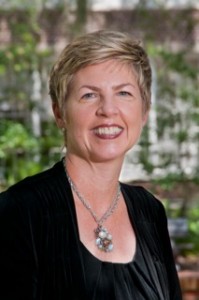GAINESVILLE, Fla. – Five states have been added to a list of five others already taking part in a $25 million University of Florida College of Education project that will improve the preparation of teachers and public school leaders who serve students with disabilities.
Montana, Utah, Georgia, Ohio and New Hampshire are the latest states to take part in the federally funded inititative sponsored by the UF College of Education’s CEEDAR Center. CEEDAR is an acronym for Collaboration for Effective Educator Development, Accountability and Reform.
The U.S. Department of Education’s Office of Special Education Programs already has committed $15 million to the project, and could spend another $10 million through 2017 if 10 additional states take part. Florida, California, Connecticut, Illinois and South Dakota were involved when the project received its initial funding in January of 2013; the final 10 states have yet to be selected.
Technical assistance—specialized advice and customized support–made possible through the funding will help states strengthen their standards and methods for preparing, licensing and evaluating their teachers and school leaders, according to center director and UF special education professor Mary Brownell.
“The addition of these five states is another giant step in our efforts to improve the education of students with disabilities,” Brownell said. “We’ve got 10 more states that could participate as well, and that will help to ensure that general and special educators have the necessary skills and support to improve the achievement of students with special needs.”
She said CEEDAR staff members have been busy offering technical assistance while national experts have organized research-driven professional development and networking programs for teachers and school leaders.
“Providing students with disabilities with effective, research-based instruction is the best way to ensure they achieve college and career readiness,” Brownell said. “That’s a goal we have for all students.”
The CEEDAR Center has created a website (ceedar.org) offering resources for any educators or groups interested in revising state licensure and certification standards; reforming teacher and leader preparation; and evaluating educator preparation programs using student data.
The center’s national partners include the American Institutes for Research, Council of Chief State School Officers, University of Kansas, American Association of Colleges for Teacher Education, Council for Exceptional Children, Council for the Accreditation for Educator Preparation, National Association of State Directors of Special Education and TASH, an advocacy organization for people with severe disabilities.
CONTACTS
— SOURCE: Mary Brownell, UF professor of special education and CEEDAR Center director; mbrownell@coe.ufl.edu; 352-273-4261
— SOURCE: Meg Kamman, CEEDAR project coordinator, UF College of Education; mkamman@coe.ufl.edu; 352-273-4259
